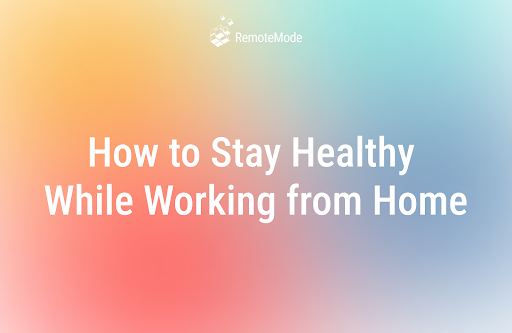What Will Remote Work Look Like in 10 Years?

The COVID-19 pandemic has challenged companies around the world to re-evaluate their office space needs. Many companies have found that their employees are just as productive working from home, leading to a surge in remote work. It is estimated that 70% of the workforce will continue to work remotely in 2025. While it is impossible to predict the future, remote work will likely continue to grow in popularity over the next ten years.
There are several reasons for this. Advances in workplace technology will make it easier for people to work from anywhere in the world. In addition, the lack of physical meetings has made it necessary for many businesses to downsize their office space. How we approach remote work is a work in progress. In all likelihood, remote work will look quite different in ten years than it does today.
What does that mean for remote workers? The future of work brings you several benefits that can enhance your quality of life and job fulfillment.
Working Smarter, Not Harder
Professionals have flocked to remote work in recent years, and it's not hard to see why. With the rise of communication tools like Slack and Zoom, we can now stay connected with colleagues regardless of location. Remote workers are also embracing short-form video formats like Loom to communicate complex ideas. And as more companies embrace asynchronous workflows, we see a shift away from the traditional 9-to-5 grind. Instead of being tied to our desks all day, we can now take advantage of flexible working hours to better manage our time and energy.
As we continue refining our processes and adopting new technologies, we'll spend less time working overall. With the rise of automation, we'll be able to focus on the work streams that make the most impact. As a result, we can work smarter, not harder – and that's good news for both employees and employers alike.
Living Globally
The ability to work remotely has transformed the way we live and work. No longer tied to a specific location, we can now choose where we want to live without worrying about finding a job in that area. We can also take advantage of opportunities to travel and work from anywhere in the world. For many people, remote work has allowed them to finally live the lifestyle they've always wanted. And with companies increasingly offering remote work options, there's no reason everyone can't enjoy the same freedom and flexibility.
Increasing Remote Worker Engagement
Globally, only 20% of employees are engaged at work. This number could plummet if companies don't make an effort to keep remote workers engaged. With a highly competitive job market and shifting technological landscape, companies can't afford to lose employees. As a result, companies will have to provide additional benefits and perks to protect remote workers' mental health and happiness.
There's no doubt the world has been through a lot in recent years. All of us bring a little bit of what is happening in the world with us to work. This situation can result in decreased productivity, low morale, and burnout. That's why companies will have to be more thoughtful of remote workers' mental health. In 10 years, this might mean companies developing policies to formalize mental health days, update work expectations, and invest in employee wellness programs. As a remote worker, you'll be confident that your company is taking care of your well-being.
Repurposing the Office
Some of us might miss social interactions in the office. The truth is, we're social animals at our core. In the future of work, offices might serve as social spaces to replenish our need for human interaction. As we continue to find value and purpose in our work from home, conventional notions of the office will need to be reimagined.
Changing our mindset about the office might result in more emphasis on meeting rooms and social spaces. One example of this is the rise of co-working spaces that bring professionals together. A sense of community and belonging is essential for our happiness, and these collaborative spaces work to bring that to remote workers. Offices designed for social interaction might fill a gap that video calls can't.
Embracing the Future of Remote Work
Although working remotely will never be for everyone, the number of people who can work productively from home will only increase in the next ten years. Companies that want to stay competitive will need to engage their remote workers and make them feel like a part of the team. The office may start to look very different as more and more companies embrace remote work.
What will remote work look like in ten years? Will it be more common, with people working from all over the globe? Or will we see a decrease in the number of people who telecommute as companies move back to traditional offices? Only time will tell just how pervasive remote work will be in ten years. But for now, it's important to embrace the positive changes of working remotely and prepare for an upgraded workplace.
Take the first step to your new remote career!






